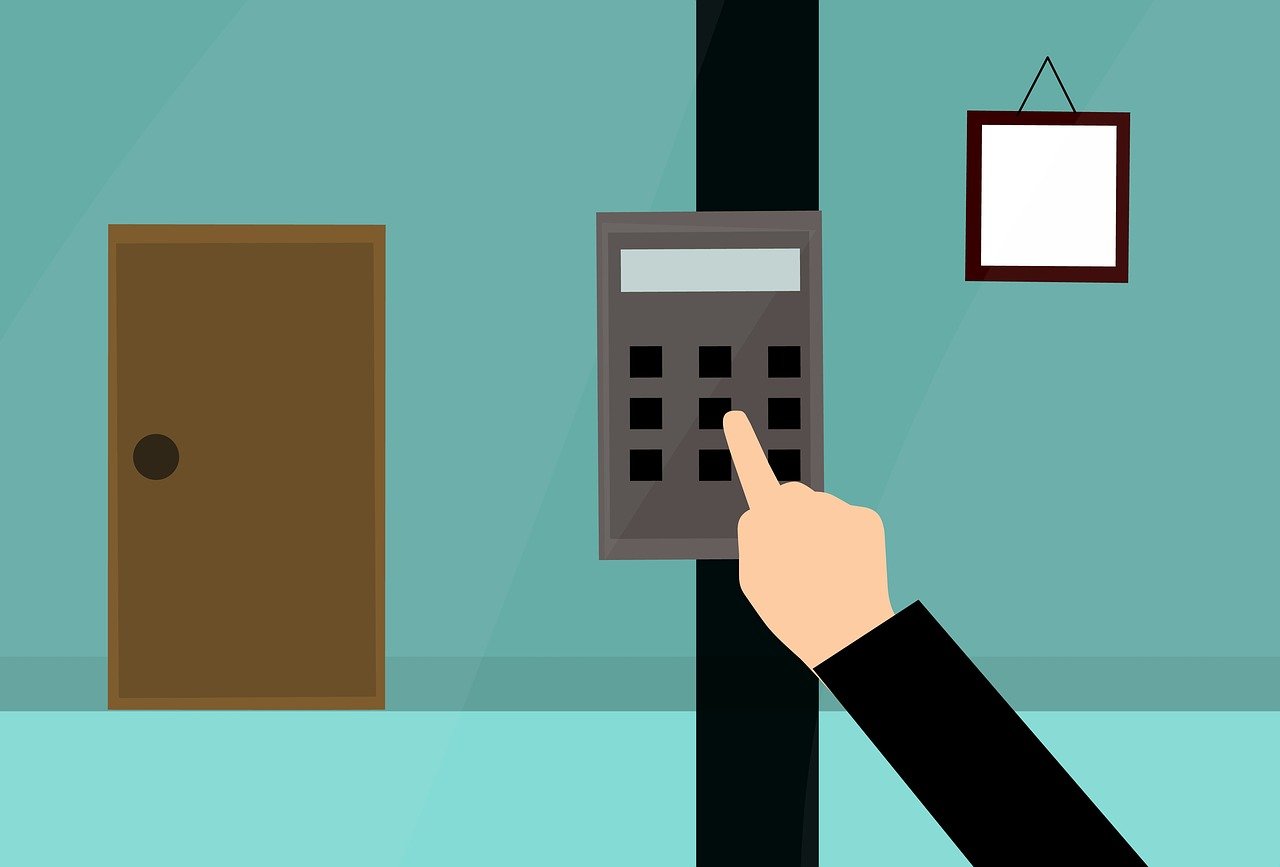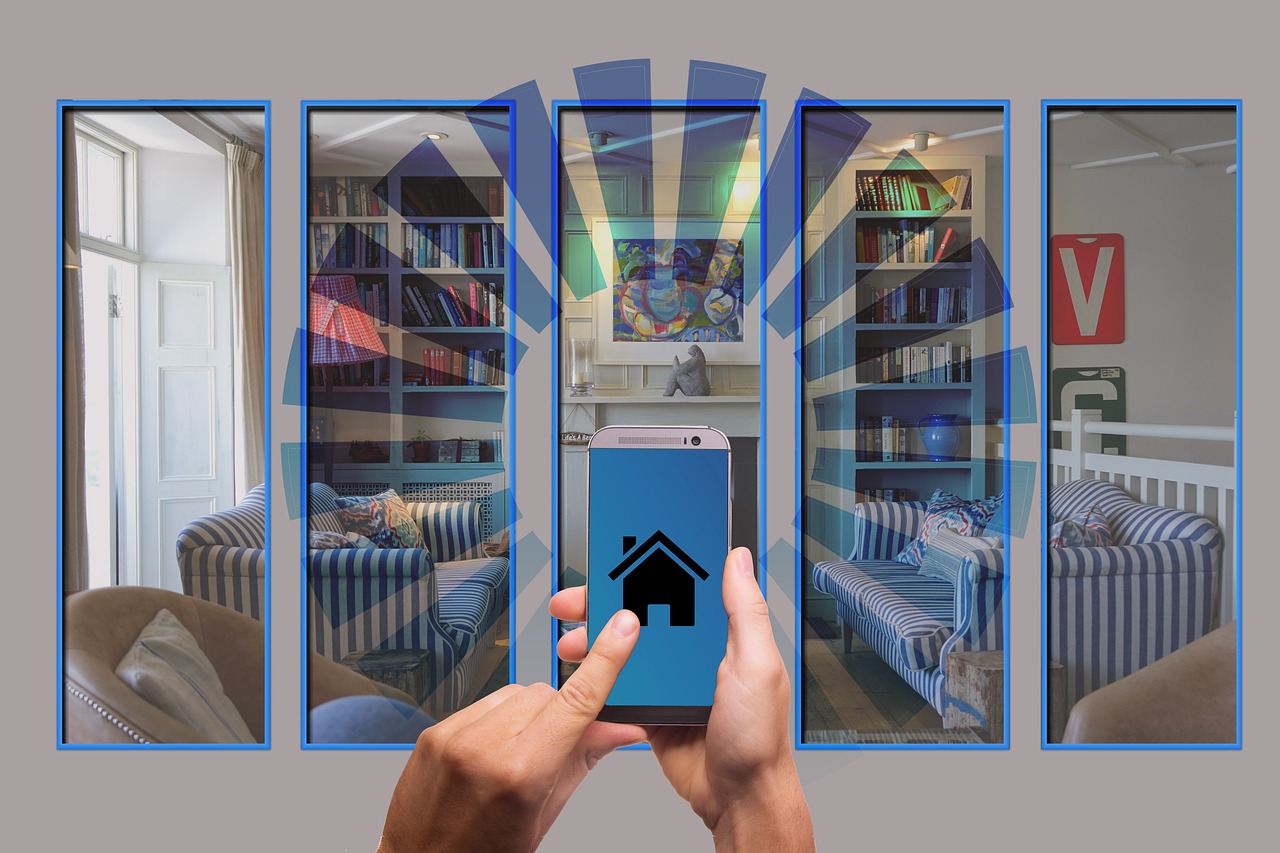This post will show you tips to choose a home alarm system.
It is quite natural to want to feel safe at home, whether we are going about our business quietly or sleeping peacefully. For some of us, this sense of security comes with the need to have an alarm system installed.
The question which then arises is the following: how to choose this one among all the models which exist? Below are some tips that will help to make your choice!
Table of Contents
How To Choose An Alarm System
The alarm system at a glance
Basically, an alarm system has the following components:
- a smoke detector;
- a volumetric detector (also called a “motion detector”);
- two perimeter detectors (for windows and doors);
- a mermaid ;
- a keypad (to disarm and activate the alarm system);
- a control panel.
To these elements, it is possible to add certain additional functions, including an emergency button or a surveillance camera. Other detectors can be installed near the patio door or the water heater. Also, you could decide to opt for models capable of detecting the presence of carbon monoxide, natural gas, or a change in temperature.
Finally, note that there are also detectors that can be installed in the basement to prevent the occurrence of a flood or sonic models, which are triggered when an abnormal noise such as a broken window product or damage to any luxury furniture in the home.
READ ALSO: What Are The SimpliSafe Home Security Packages?
In the event that you have animals, a warning is in order. Indeed, some motion detectors work in such a way that a volume of 40 to 100 pounds will be enough to trigger them.
Therefore, if your pet weighs more than this weight, your motion detector may be triggered. For this reason, owners of relatively large animals are generally advised to opt for perimeter and non-volumetric detectors.
Besides, what is the difference between the two? As the name suggests very well, a volumetric detector will trigger due to the presence of a defined volume in the space, while a perimeter detector will trigger based on abnormal activities detected within a defined perimeter.
READ ALSO: Why Is Data Backup And Recovery So Important?
Alarm System: How Much Does It Cost?
As we just mentioned, an alarm system can be customized to meet a variety of needs. Due to the many additions that can be made to the base system, prices will vary widely and range between $ 300 and $ 1000.
This price excludes the monthly fees that you will have to pay (from $ 10 to $ 50 per month) for your system to be connected to a central monitoring station. It should be noted, in this regard, that it is sometimes required to use this type of subscription at the time of purchase. While doing this, it is important to educate yourself well if you want to get a realistic idea of the costs involved.
Moreover, the duration of the subscription is also variable (from 1 to 5 years). Note that your insurer may agree to offer you a discount on your annual fees if your system is connected to a central monitoring station. This discount can represent between 5% and 30% of your home insurance costs.
Also, if you decide that the contact with the central monitoring station will be via a cell phone, it will cost you $ 200 to $ 500 more to purchase as well as $ 5 to $ 10 more. per month. On another note, it’s good to know that you have a one-year warranty on your new alarm system. If you want to obtain an extended warranty, you will have to pay between $ 10 and $ 50 more per month.
It should be mentioned that comparing the different offerings can be quite difficult to make, with some companies appearing to offer systems at surprisingly very low prices. However, these will come with very high monthly fees.
It will therefore be necessary to carefully compare the total costs generated, including the purchase (or rental costs) and the monthly costs incurred for the remote monitoring.
Would you like to terminate your contract? To do this, the company you are doing business with will likely ask you to pay a certain amount as compensation. Some companies charge a more substantial penalty if you got a discount on the purchase of your system, which will be determined by the length of time that has elapsed between the signing of the contract and its cancellation.
Rent or buy your alarm system?
Although we are currently talking about the purchase of an alarm system, be aware that you could also decide to rent it.
However, it is usually more advantageous to go for the purchase because of the higher monthly payments with a lease. In doing so, you will most likely lose out in the long run by forgoing the purchase.
READ ALSO: 6 Ways To Secure Your Home Construction Site
To Maintain Or Not To Maintain Contact With The Central?
If you decide to opt-out of this feature after your subscription ends, there are a few things to consider. First of all, if you are not connected to a central monitoring station and the alarm system is triggered while you are not at home, you will have to rely on the call of one of your neighbors so that emergency services can be contacted.
If you decide to receive a cell phone alert, you need to have complete confidence in the quality of signal reception in the area where you are located.
In terms of how the report is received by the control panel, you have two options: landline or cellular. Of course, we will agree that it would be possible for a thief to cut the wiring, a possibility which is immediately ruled out with a cell line.
However, keep in mind that most of the time, the wiring installed is not visible and therefore inaccessible.
READ ALSO: Exclusive Interview With Russell Rothstein, CEO of IT Central Station
Wired or wireless systems
Among all the existing systems on the market, two main categories exist the systems provided with wires and those which do not have any spinning.
Because of its higher level of sophistication, the wireless system is generally more expensive (about $ 150 more). These operate using batteries and remote control to turn the system on and off. For reference, the batteries last about 5 years.
As for the second system, its various components are interconnected with wires. In order to conceal them, they are usually made to pass through the ceiling or the attic. Finally, it is important to emphasize that there are also hybrid systems, which integrate certain devices equipped with wires and others that do not.
It should be noted that wired systems are known for their better functioning as well as for their lower propensity to trigger a false alarm.
Tips To Choose A Home Alarm System
Choosing the right home alarm system can feel overwhelming with so many options available.
Here are some key tips to help you navigate the selection process and find a system that perfectly fits your needs and budget:
1. Assess your needs and security concerns
- What are you trying to protect? Valuables, family, pets, or specific areas of your home?
- What type of property do you have? House, apartment, condo, or something else? Different sized and shaped spaces require different approaches.
- Do you prefer professional installation or DIY? Consider your comfort level with technology and installation tasks.
- What level of monitoring do you need? Self-monitoring, professional monitoring, or a combination?
- Budget: Determine how much you’re comfortable spending on upfront equipment, monthly fees, and installation costs.
2. Research different types of home alarm systems
- Wired vs. wireless: Wired systems are more reliable but require professional installation, while wireless systems are easier to install yourself but may have range limitations.
- Monitored vs. unmonitored: Monitored systems alert a security company when triggered, while unmonitored systems alert you directly, potentially requiring self-intervention.
- Landline vs. cellular backup: Consider alternative communication methods for alarm signals in case of phone line outages.
3. Compare features and functionalities
- Sensors: Door and window sensors, motion detectors, smoke and CO detectors, water leak detectors, etc.
- Cameras: Indoor, outdoor, with night vision, motion-activated recording, etc.
- Smart home integration: Compatibility with smart locks, thermostats, lights, etc.
- Mobile app control: Remotely view and control your system, receive alerts, and manage settings.
- Customer service and support: Look for responsive and helpful customer service to address any questions or issues.
4. Get quotes and read reviews
- Compare pricing from multiple providers for both equipment and monitoring services.
- Read online reviews and customer testimonials to gain insights into user experiences with different systems.
5. Consider additional factors
- Contract length and termination fees: Choose a flexible contract and avoid hefty termination fees.
- Warranties and guarantees: Ensure the system and components come with proper warranties.
- Scalability: Consider if the system can be easily expanded in the future if your needs change.
Bonus Tip: Consult with security professionals or experienced friends/family for personalized recommendations based on your specific requirements.
READ ALSO: Smart Home Security Tips That You MUST READ
Conclusion
What’s more, maintenance costs are usually lower. Let us conclude by emphasizing that the purchase of an alarm system to install oneself is often not recommended, in particular, because of the inherent difficulties of the installation which lead to a higher number of false alarms.
Remember, the best home alarm system is one that fits your unique needs and budget, effectively protects your property, and provides peace of mind. By following these tips and conducting thorough research, you’ll be well on your way to choosing the perfect system for your home.
RELATED POSTS
- 10 Home Security Tips You Need To Implement Now [Must Read]
- 4 Golden Home Security Services You Must Consider
- Kangaroo Home Security Review
- 10 Most Secure Operating Systems (#9 Is Our Favourite)
- Full Review Of SimpliSafe Home Security System
- 5 Benefits of Having a Home Security System
- 10 Home Security Facts You Never Knew About
About the Author:
Marie Beaujolie is a computer network engineer and content writer from Paris. She is passionate about technology and exploring new ways to make people’s lives easier. Marie has been working in the IT industry for many years and has a wealth of knowledge about computer security and best practices. She is a regular contributor for SecureBlitz.com, where she writes about the latest trends and news in the cyber security industry. Marie is committed to helping people stay safe online and encouraging them to take the necessary steps to protect their data.









